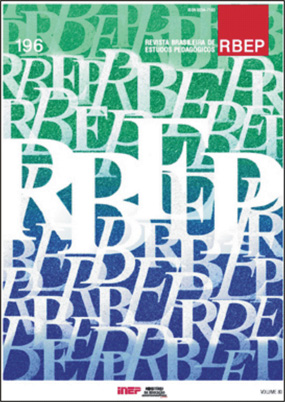O sistema britânico de garantia de qualidade do ensino superior: lições para o Brasil
Abstract
A avaliação do ensino superior, um dos principais compromissos da atual administração do Ministério da Educação, está, com ênfase crescente, na agenda dos governos do mundo inteiro. Em se tratando de uma problemática bastante nova e decididamente polêmica, é comum avançar nessa área a partir de um escrutínio da experiência de outros para adotar e adaptar o que parece de interesse. O sistema de avaliação britânico, proposto pela Quality Assurance Agency (QAA), criada em 1997, é um sistema que chama a atenção pela abrangência e sofisticação da sua concepção. Além de promover e integrar as avaliações internas das próprias instituições e as externas (avaliação de cursos e avaliação institucional), a agência aceitou o desafio de definir pontos de referência de qualidade. Por meio de programas, tais como "Estrutura das Titulações Acadêmicas", "Padrões de Referência de Qualidade de Área" e "Especificações de Programa", a QAA se propõe a definir de forma explícita e consensual padrões e exigências a serem cumpridas em diferentes cursos e níveis de ensino. Da análise dessa experiência, em fase de avançada implementação, são extraídas lições para melhor articular e fortalecer o Sistema Nacional de Avaliação do Ensino Superior no Brasil. Palavras-chave: sistemas de avaliação; ensino superior; Reino Unido. Abstract Quality assurance in higher education, a major commitment of the current administration of the Brazilian Ministry of Education, is increasingly being placed on the agenda in most of the countries of the world. As this is a relatively new and highly controversial issue, a common strategy is to scrutinize the experience of others and adapt and adopt what seems to be of interest. The British quality assurance system, formulated by the Quality Assurance Agency (the QAA, created in 1997), is often cited for its comprehensiveness and sophistication. Besides promoting internal evaluation by the institutions of higher education themselves and its integration with external evaluation by the agency "Subject Review" and "Institutional Review"), the QAA has taken up the challenge of defining "reference points for quality". Through programmes such as the "National Qualifications Framework", "Subject Benchmarking" and "Programme Specification", the QAA intends to define, in an explicit and consensual way, the standards and demands to e met by students and institutions in different subjects and at different levels. From assessment of this experience, which is already at an advanced stage of execution, lessons are being learned to better integrate and strengthen the Brazilian system of quality assurance in higher education. Keywords: quality assurance; higher education; United Kingdom.Downloads
Download data is not yet available.
Published
01-12-1999
How to Cite
SPAGNOLO, F. O sistema britânico de garantia de qualidade do ensino superior: lições para o Brasil. Brazilian Journal of Pedagogical Studies , v. 80, n. 196, 1 Dec. 1999.
Issue
Section
Avaliação
Once their work is accepted for publication, author’s copyrights are automatically relinquished to the National Institute for Educational Studies and Research Anísio Teixeira (Inep).
Since 2016, the journal Revista Brasileira de Estudos Pedagógicos (RBEP) uses the licence CC-BY.
Partial or total reproduction of the content of this Journal is permitted provided that the original publication is properly referenced, as well as a link to license CC BY 4.0 and to indicate any possible alterations made to the article.




















